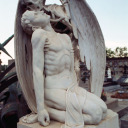Bloodfromleeches - Ideals Of A Procrastinator

More Posts from Bloodfromleeches and Others
MBTI: DARK ACADEMIA AESTHETICS
ISTJ: jet black fountain pens and thin wire glasses, illustrated books on lepidology, microscopes with delicate geers, library card-catalogues, neat signatures, the scent of formaldehyde and the art of precision.
ESTJ: shiny black Oxford loafers and white button down shirts, busts of Roman generals, prefect’s badges, sepia maps, grandfather clocks, translating Herodotus, sharp silver letter openers with bloodred handles.
ISTP: leather-banded watches and ships-in bottles, sketched diagrams of bridges, chesterfield coats, bronze protractors and disheveled piles of graph paper, Voltaire quotes, chalk equations, pulling all nighters.
ESTP: roguishly loose striped neckties and crooked grins, varsity sweaters and scraped knees, secret passageways to the rooftops, Beat poetry, the scent of cedar, steam engines barreling through winding mountains.
ESFJ: black monogrammed gloves and red scarves, snowball fights, cups of hot chocolate, angelic choral voices, etiquette books, Jane Austen novels, silk robes, ballet shoes, light through stained glass windows.
ISFJ: cups of Earl Grey and wool button down cardigans, pressed lavender in books of Emily Dickinson poetry, piano sheet music, personalized wax letter seals, watercolor paintings in faded blues and greys.
INFP: Chelsea boots, olive green sweaters and tousled hair, existentialist novels and espresso in rainy cafes, signed postcards and fresh baguettes in bicycle baskets, moving to a new city alone, dried roses and stormy eyes.
ENFP: Disheveled brown corduroy, stradivarius violins, bell towers full of bats, Shakespeare comedies performed for raucous audiences, chai tea, Irish setters, impassioned marginalia, Botticelli curls, ivy creeping over red brick.
ISFP: reading Romantic poetry in grave yards, black turtle-necks, charcoal-stained fingertips, record collections, black and white films on antique projectors, gothic spires through fog, gin cocktails, poker faces.
ESFP: Maps hidden on the backs of paintings, muddy derby shoes, bacchinalia rituals, the scent of pomade, Oscar Wilde essays, crystal goblets and crystal chandeliers, green grapes and purple velvet, curled ram’s horns.
INFJ: tattered paperback copies of Virginia Woolf novels, tower windows, local ghost stories, Faire Isles sweaters, letter-writing by candlelight, flutes, paintings of rosy-cheeked Greek nymphs, pistachio macarons.
ENFJ: reading Whitman aloud, frescos of angels, paisley pocket squares, sumptuous dinner parties, passports and polaroids, oil portraits of royalty, studying multiple languages, plates of pasta, emerald rings.
INTJ: silver cuff links and black umbrellas, antique chess boards, ravens perched on wrought-iron gates, photography dark rooms, anatomical illustrations, suits of armor, stone gargoyles, hedge mazes, horror short stories.
ENTJ: leather-bound planners, tartan scarves, memorized political treatises, debate podiums and briefcases, black coffee, bookstores in the morning, statues of Nike, gold pocketwatches, fresh newspapers, brown berets.
INTP: oversized tweed blazers with elbow patches, tortoises in terrariums, the scent of old books, spiral staircases, stargazing under indigo skies, knee-high socks, Sherlock Holmes stories, breaking secret codes.
ENTP: glasses of dark red wine, laurel crowns, starting arguments about philosophy, tortoise shell glasses, domed ceilings, lore of trickster gods, snowy owls, Socrates’ dialogues, DaVinci sketches, ripe pomegranates.



dark academia lookbook from a conservation biology major // ♡
Research ideas for bored students
The evolution of national identity in the country of your interest (ancient or modern)
The influence of paganism on christianity in Ireland and Scotland.
The impact that fairy beleif had on the Scottish witch hunts.
How fashion was influenced by the second world war.
The differences between and evolution of first, second and third wave feminism.
The impact the post-modern globalism has had on human rights.
Depictions of homosexuality in the ancient world (are there similarities/differences between nations?)
The evolution of tavern and drinking cultue in England, Scotland and the Netherlands.
The portrayal of women in early-modern English ballads.
The use of certain tunes or melodies in E.M. English ballads.
Portrayals of the devil in E.M. English ballads.
The difference between collective memory and historical facts (war is a time when our memories are often romanticised).
Fashion in the Elizabethan era and how it changed after.
The evolution of pens and writing materials
Historical methods of making paint/paint thinners.
Men in the early-modern witch hunts.
Differences between old world and new world witch hunts.
The use of torture in witch trials and the laws regarding torture (differences between countries)?
The use of salt as currency.
Depictions of intoxiication in ancient art.
How ancient societies viewed drinking and how they drank.
The lives of great poets.
The decline of the latin language.
The English civil war during the 17 century.
The relationship between ancient Celts and the Romans.
Religious symbolism in early modern art.
The history and evolution of marriage.
“In Praise of Folly,” by Desiderius Erasmus
The Protestant Reformation and/or the resulting split of protestantism (calvinism, lutheranism, anabaptists, etc.)
The history of Christmas in the new world.
Add your own in the comments!
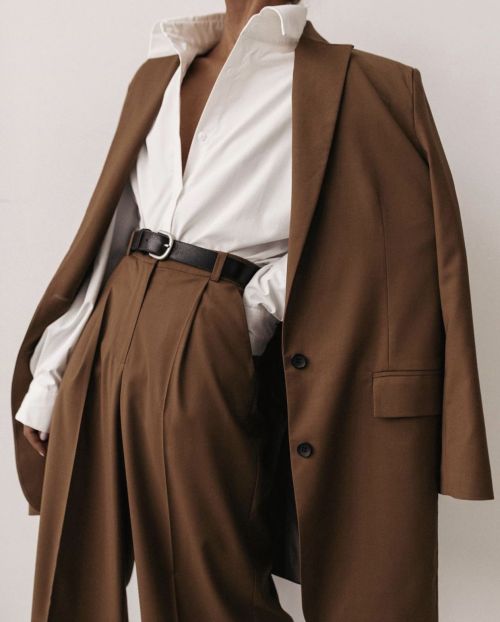

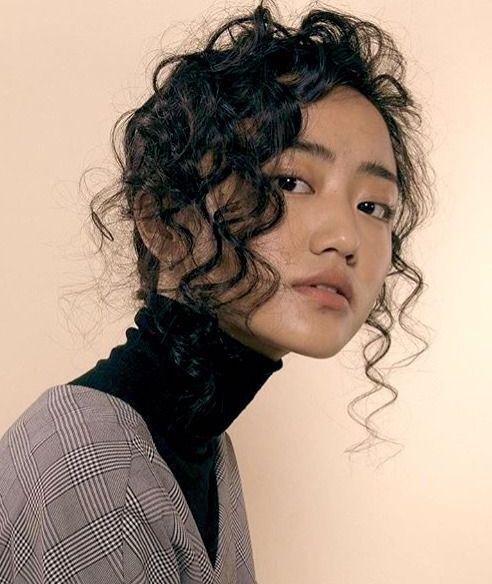






Hi, i love your posts and the dark academia aesthetic and I want to start dressing in the da style but there are no good thrift stores where I live, could you recommend some online clothes shops please?
Hey! Sorry for the delay, here are some ideas that will hopefully help.
Facebook Marketplace and ThreadUp are great options for online thrifting, though the former can also depend on your location and honestly the furniture is the greatest selling point, at least for me. But I do often find good shoes on there.
Etsy is great for higher quality staple pieces, especially for good materials like linen. Though I know it can run a bit more expensive, especially since the stores often sell hand made products. So, for things on the cheaper side, try:
Stein: Stein is great in both price and style. They have a filtering system that includes the “elegant” filter, which gives tons of dark academia styled clothing. The only downside is most of their clothes isn’t great quality in terms of fabric; it’s mostly polyester. You can filter fabric type for higher quality, like cotton. Still, I’d highly recommend them for unique cheap pieces as well as staples. They’re pants especially are great.
Old Navy: This surprised me at least, but Old Navy has some very high quality items, if you’re willing to hunt. If you use the right keywords (High waisted, ankle pants, trousers, cigarette pants, button down, etc.) most of their stuff is around 100% cotton, and quite cheap. Most of their stuff is pretty basic, but that means they’re good for cheap basics.
ASOS: A bit more expensive then the previous two, but still on the lower end price wise. Check out their “suits and tailoring”, especially for good pants or matched sets. Plus, they seem to have a broader array of clothing for different body types, so that’s a bonus. Most of their stuff seems like good quality; they have a lot of linen and cotton blends.
White House Black Market: Okay, now we’re at the more expensive side of things. Obviously with that, comes higher quality. WHBM has some gorgeous stuff, and a lot of my favorite pieces come from them, though admittedly I’ve never bought anything from them that wasn’t heavily discounted or thrifted. They have both staples and some wonderful statment pieces. You can try entering higher end brands like them into ThreadUp though, so maybe try that if this is too expensive?
Let me know if you have any more questions, and everyone else feel free to add more in the comments!
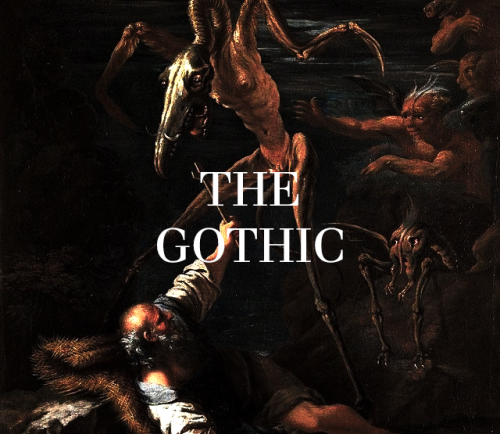
Masterpost of Free Gothic Literature & Theory
Classics Vathek by William Beckford Wuthering Heights by Emily Brontë The Woman in White & The Moonstone by Wilkie Collins Carmilla by Joseph Sheridan Le Fanu The Turn of the Screw by Henry James The Monk by Matthew Lewis The Phantom of the Opera by Gaston Leroux Melmoth the Wanderer by Charles Maturin The Vampyre; a Tale by John Polidori Collected Works of Edgar Allan Poe Confessions of an English Opium-Eater by Thomas De Quincey The Mysteries of Udolpho by Ann Radcliffe The Strange Case of Dr. Jekyll and Mr. Hyde by Robert Louis Stevenson Dracula by Bram Stoker The Castle of Otranto by Horace Walpole The Picture of Dorian Gray by Oscar Wilde Frankenstein; Or, The Modern Prometheus by Mary Wollstonecraft Shelley
Short Stories and Poems An Occurrence at Owl Creek Bridge by Ambrose Bierce Songs of Innocence & Songs of Experience by William Blake The Rime of the Ancient Mariner by Samuel Taylor Coleridge The King in Yellow by Robert W. Chambers The Legend of Sleepy Hollow by Washington Irving The Yellow Wallpaper by Charlotte Perkins Gilman
Pre-Gothic Beowulf The Divine Comedy by Dante Alighieri A Journal of the Plague Year by Daniel Defoe Faust by Johann Wolfgang von Goethe The Tragical History of Doctor Faustus by Christopher Marlowe Paradise Lost by John Milton Macbeth by William Shakespeare Oedipus, King of Thebes by Sophocles The Duchess of Malfi by John Webster
Gothic-Adjacent Northanger Abbey by Jane Austen The Wendigo by Algernon Blackwood Jane Eyre & Villette by Charlotte Brontë Lyrical Ballads, With a Few Other Poems by Coleridge and Wordsworth The Mystery of Edwin Drood by Charles Dickens The Idiot & Demons (The Possessed) by Fyodor Dostoyevsky The Man in the Iron Mask by Alexandre Dumas Moby-Dick by Herman Melville The Island of Doctor Moreau by H. G. Wells
Historical Theory and Background The French Revolution of 1789 by John S. C. Abbott Shakespearean Tragedy: Lectures on Hamlet, Othello, King Lear, Macbeth by A. C. Bradley The Tale of Terror: A Study of the Gothic Romance by Edith Birkhead On Heroes, Hero-Worship, and the Heroic in History by Thomas Carlyle Demonology and Devil-Lore by Moncure Daniel Conway Ancient Pagan and Modern Christian Symbolism by Inman and Newton On Liberty by John Stuart Mill The Social Contract & Discourses by Jean-Jacques Rousseau Feminism in Greek Literature from Homer to Aristotle by Frederick Wright
Academic Theory Introduction: Replicating Bodies in Nineteenth-Century Science and Culture by Will Abberley Viewpoint: Transatlantic Scholarship on Victorian Literature and Culture by Isobel Armstrong Theories of Space and the Nineteenth-Century Novel by Isobel Armstrong The Higher Spaces of the Late Nineteenth-Century Novel by Mark Blacklock The Shipwrecked salvation, metaphor of penance in the Catalan gothic by Marta Nuet Blanch Marching towards Destruction: the Crowd in Urban Gothic by Christophe Chambost Women, Power and Conflict: The Gothic heroine and “Chocolate-box Gothic” by Avril Horner Psychos’ Haunting Memories: A(n) (Un)common Literary Heritage by Maria Antónia Lima ‘Thrilled with Chilly Horror’: A Formulaic Pattern in Gothic Fiction by Aguirre Manuel The terms “Gothic” and “Neogothic” in the context of Literary History by O. V. Razumovskaja The Female Vampires and the Uncanny Childhood by Gabriele Scalessa Curating Gothic Nightmares by Heather Tilley Elizabeth Bowen, Modernism, and the Spectre of Anglo-Ireland by James F. Wurtz Hesitation, Projection and Desire: The Fictionalizing ‘as if…’ in Dostoevskii’s Early Works by Sarah J. Young Intermediality and polymorphism of narratives in the Gothic tradition by Ihina Zoia
dark science
okay i’m starting a new aesthetic, mashing together dark academia and sciencecore / mysterycore, i call it...
dark science
some dark science stuff:
so like. dark academia but instead of literature (which is pretty good) it focuses on the sciences
biology
chemistry
the natural sciences
forensic science!!
anatomy and physiology
a dash of psychology for good measure
studying the human body inside and out
staying in a lab until the early morning light, distraught and fascinated over your most recent discovery
thinking about science ethics and morality
frankenstein!!
the strange case of dr jekyll and mr hyde
mad scientists in general
spending hours at a time engulfed in a subject
preserved specimens, bones, pinned insects
trips to science museums
bundling up in warm coats outside, cold air chilling you still
wearing colors just as cold, hues of blue and deep forest green and the gamut of grey to black
having lab gloves or goggles available at all times
messy hair, perhaps pulled back into a bun or ponytail if it’s too long
a fascination with bunsen burners, candles, etc
beakers, graduated cylinders, evaporating dishes, all sorts of science equipment
curious things trapped behind glass, drenched in formaldehyde
mock crime scenes
investigating real crimes, solved or unsolved
hastily written notes written in the fervor of discovery
retracing your steps when an experiment goes awry
glancing behind your back as you walk home from the lab, books under your arm

Masterpost of Free Gothic Literature & Theory
Classics Vathek by William Beckford Wuthering Heights by Emily Brontë The Woman in White & The Moonstone by Wilkie Collins Carmilla by Joseph Sheridan Le Fanu The Turn of the Screw by Henry James The Monk by Matthew Lewis The Phantom of the Opera by Gaston Leroux Melmoth the Wanderer by Charles Maturin The Vampyre; a Tale by John Polidori Collected Works of Edgar Allan Poe Confessions of an English Opium-Eater by Thomas De Quincey The Mysteries of Udolpho by Ann Radcliffe The Strange Case of Dr. Jekyll and Mr. Hyde by Robert Louis Stevenson Dracula by Bram Stoker The Castle of Otranto by Horace Walpole The Picture of Dorian Gray by Oscar Wilde Frankenstein; Or, The Modern Prometheus by Mary Wollstonecraft Shelley
Short Stories and Poems An Occurrence at Owl Creek Bridge by Ambrose Bierce Songs of Innocence & Songs of Experience by William Blake The Rime of the Ancient Mariner by Samuel Taylor Coleridge The King in Yellow by Robert W. Chambers The Legend of Sleepy Hollow by Washington Irving The Yellow Wallpaper by Charlotte Perkins Gilman
Pre-Gothic Beowulf The Divine Comedy by Dante Alighieri A Journal of the Plague Year by Daniel Defoe Faust by Johann Wolfgang von Goethe The Tragical History of Doctor Faustus by Christopher Marlowe Paradise Lost by John Milton Macbeth by William Shakespeare Oedipus, King of Thebes by Sophocles The Duchess of Malfi by John Webster
Gothic-Adjacent Northanger Abbey by Jane Austen The Wendigo by Algernon Blackwood Jane Eyre & Villette by Charlotte Brontë Lyrical Ballads, With a Few Other Poems by Coleridge and Wordsworth The Mystery of Edwin Drood by Charles Dickens The Idiot & Demons (The Possessed) by Fyodor Dostoyevsky The Man in the Iron Mask by Alexandre Dumas Moby-Dick by Herman Melville The Island of Doctor Moreau by H. G. Wells
Historical Theory and Background The French Revolution of 1789 by John S. C. Abbott Shakespearean Tragedy: Lectures on Hamlet, Othello, King Lear, Macbeth by A. C. Bradley The Tale of Terror: A Study of the Gothic Romance by Edith Birkhead On Heroes, Hero-Worship, and the Heroic in History by Thomas Carlyle Demonology and Devil-Lore by Moncure Daniel Conway Ancient Pagan and Modern Christian Symbolism by Inman and Newton On Liberty by John Stuart Mill The Social Contract & Discourses by Jean-Jacques Rousseau Feminism in Greek Literature from Homer to Aristotle by Frederick Wright
Academic Theory Introduction: Replicating Bodies in Nineteenth-Century Science and Culture by Will Abberley Viewpoint: Transatlantic Scholarship on Victorian Literature and Culture by Isobel Armstrong Theories of Space and the Nineteenth-Century Novel by Isobel Armstrong The Higher Spaces of the Late Nineteenth-Century Novel by Mark Blacklock The Shipwrecked salvation, metaphor of penance in the Catalan gothic by Marta Nuet Blanch Marching towards Destruction: the Crowd in Urban Gothic by Christophe Chambost Women, Power and Conflict: The Gothic heroine and “Chocolate-box Gothic” by Avril Horner Psychos’ Haunting Memories: A(n) (Un)common Literary Heritage by Maria Antónia Lima ‘Thrilled with Chilly Horror’: A Formulaic Pattern in Gothic Fiction by Aguirre Manuel The terms “Gothic” and “Neogothic” in the context of Literary History by O. V. Razumovskaja The Female Vampires and the Uncanny Childhood by Gabriele Scalessa Curating Gothic Nightmares by Heather Tilley Elizabeth Bowen, Modernism, and the Spectre of Anglo-Ireland by James F. Wurtz Hesitation, Projection and Desire: The Fictionalizing ‘as if…’ in Dostoevskii’s Early Works by Sarah J. Young Intermediality and polymorphism of narratives in the Gothic tradition by Ihina Zoia
you’re my favorite person




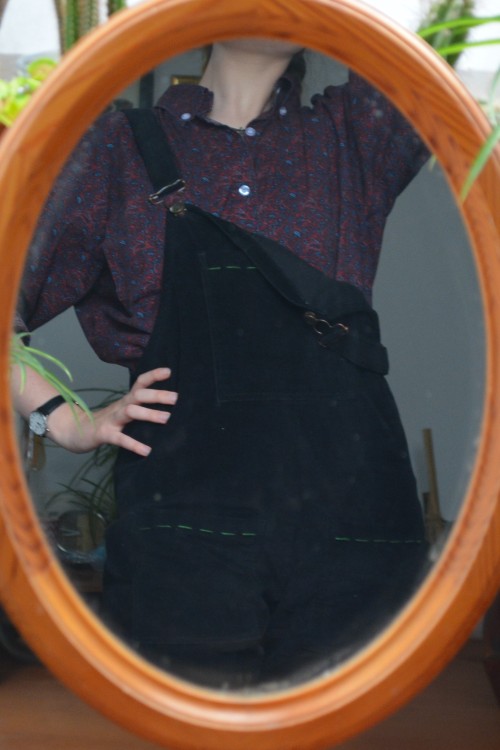

Dark Academia Lookbook “Fashion is what one wears oneself; what is unfashionable is what other people wear.” - Oscar Wilde I’ve noticed that a lot of dark academia inspired fashion uses brown and beige as neutrals - which looks great, however they don’t always go with all skin tones (like mine). Here are a few outfit ideas that use black/grey/white as base tones! Remember, you don’t have to be rich to afford the aesthetic: Tartan skirt - vintage, charity shop Green corduroy trousers - vintage, depop Burgundy paisley shirt - vintage shop Ugly blue shirt - charity shop And the burgundy suit was from my y11 prom, which I’m still wearing!
-
 gjnrock reblogged this · 3 months ago
gjnrock reblogged this · 3 months ago -
 minhoca-do-mato liked this · 3 months ago
minhoca-do-mato liked this · 3 months ago -
 khattikeri reblogged this · 3 months ago
khattikeri reblogged this · 3 months ago -
 heal-me-with-words liked this · 5 months ago
heal-me-with-words liked this · 5 months ago -
 whistlingmyname reblogged this · 5 months ago
whistlingmyname reblogged this · 5 months ago -
 eleenth liked this · 6 months ago
eleenth liked this · 6 months ago -
 radiantdreamer17 reblogged this · 7 months ago
radiantdreamer17 reblogged this · 7 months ago -
 lilscream06 liked this · 7 months ago
lilscream06 liked this · 7 months ago -
 cavolettii liked this · 7 months ago
cavolettii liked this · 7 months ago -
 f0und-the-devil-in-me liked this · 7 months ago
f0und-the-devil-in-me liked this · 7 months ago -
 theblackcat reblogged this · 8 months ago
theblackcat reblogged this · 8 months ago -
 mkultrababy liked this · 8 months ago
mkultrababy liked this · 8 months ago -
 nolovedeepvveb reblogged this · 8 months ago
nolovedeepvveb reblogged this · 8 months ago -
 selenedelirio liked this · 8 months ago
selenedelirio liked this · 8 months ago -
 svdade reblogged this · 8 months ago
svdade reblogged this · 8 months ago -
 ghostboy-advance reblogged this · 8 months ago
ghostboy-advance reblogged this · 8 months ago -
 ghostboy-advance liked this · 8 months ago
ghostboy-advance liked this · 8 months ago -
 de-tanto-chimbiar reblogged this · 8 months ago
de-tanto-chimbiar reblogged this · 8 months ago -
 coelacanthking liked this · 8 months ago
coelacanthking liked this · 8 months ago -
 aealoarcturus reblogged this · 8 months ago
aealoarcturus reblogged this · 8 months ago -
 ilmi0labirint0 liked this · 8 months ago
ilmi0labirint0 liked this · 8 months ago -
 hushinthedark reblogged this · 8 months ago
hushinthedark reblogged this · 8 months ago -
 corazonenelcielo liked this · 8 months ago
corazonenelcielo liked this · 8 months ago -
 flor-del-infierno reblogged this · 8 months ago
flor-del-infierno reblogged this · 8 months ago -
 flor-del-infierno liked this · 8 months ago
flor-del-infierno liked this · 8 months ago -
 ryanmodef liked this · 9 months ago
ryanmodef liked this · 9 months ago -
 vnnie-celeste reblogged this · 9 months ago
vnnie-celeste reblogged this · 9 months ago -
 vnnie-celeste liked this · 9 months ago
vnnie-celeste liked this · 9 months ago -
 impureprince liked this · 9 months ago
impureprince liked this · 9 months ago -
 amarillo-napoles reblogged this · 9 months ago
amarillo-napoles reblogged this · 9 months ago -
 m4ster--mnd reblogged this · 9 months ago
m4ster--mnd reblogged this · 9 months ago -
 m4ster--mnd liked this · 9 months ago
m4ster--mnd liked this · 9 months ago -
 jigoloharmegiddo2 liked this · 9 months ago
jigoloharmegiddo2 liked this · 9 months ago -
 vfr21-7 liked this · 9 months ago
vfr21-7 liked this · 9 months ago -
 7evnty liked this · 9 months ago
7evnty liked this · 9 months ago -
 gashmother reblogged this · 10 months ago
gashmother reblogged this · 10 months ago -
 dionysianbaby reblogged this · 10 months ago
dionysianbaby reblogged this · 10 months ago -
 raptorgator reblogged this · 10 months ago
raptorgator reblogged this · 10 months ago -
 innocenceofourhearts liked this · 10 months ago
innocenceofourhearts liked this · 10 months ago -
 coyoteferal reblogged this · 10 months ago
coyoteferal reblogged this · 10 months ago -
 loliismyangel reblogged this · 10 months ago
loliismyangel reblogged this · 10 months ago
